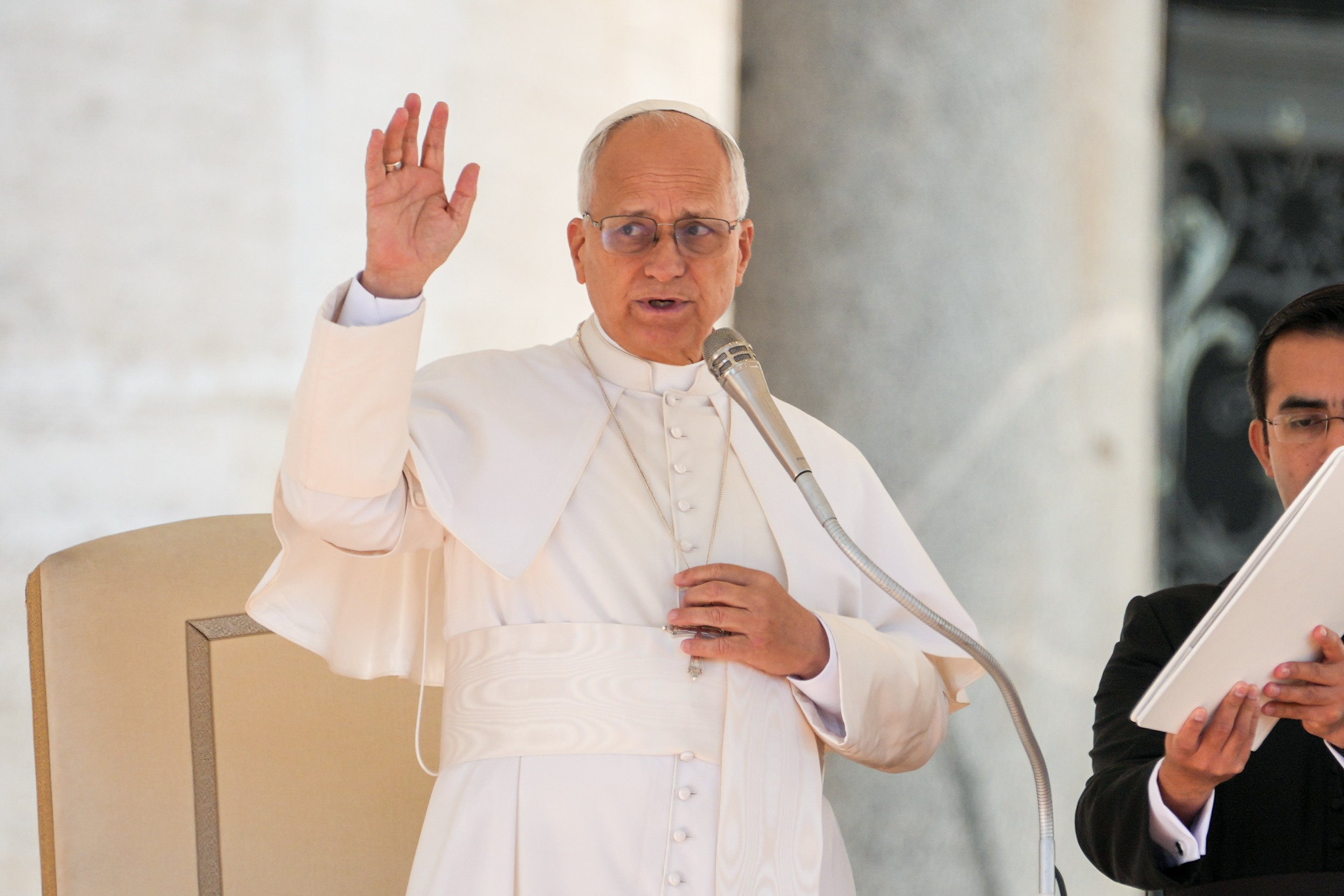April 6, 2018 at 1:53 p.m.
WORD OF FAITH
An unfamiliar structure
'For from Him and through Him and to Him are all things. To Him be the glory forver.' - Romans 11:36
When teaching Sunday's Gospel passage (Matthew 16:13-20), I often mention that a real devotee of classical music is someone who can listen to the "William Tell Overture" and not think of the Lone Ranger.
In a parallel way, a real student of Scripture is someone who can listen to Matthew 16:18 - "You are Rock, and upon this rock I will build my church" - and not think of the papacy.
I'll leave it to Church historians to explain how an equalitarian community, based on loving service to one another, developed into the hierarchical structure of clergy and laity with which we're familiar today. Just as Rossini knew nothing of a masked man and his Indian companion, Matthew knew nothing of Vatican bureaucracy.
His own problems
Like all evangelists, Matthew is concerned with the problems his community is facing at the time he's writing. Leadership in Matthew's community was starting to take on some of the worst aspects of Jewish leadership with which its Jewish/Christian members were familiar.
As director of my diocese's permanent diaconate program back in the 1970s and '80s, I experienced something similar. Those were the beginning days of diaconal ministry. When most of our candidates envisioned their future service, they envisioned priesthood - the only Catholic ministry with which they were familiar.
I often had to remind them that they were preparing for a unique ministry, something our Church had not seen for almost 1,500 years. They had to create a new image of ministry and not just prepare to be "mini-priests."
Likewise, Matthew's community knew only Jewish models of religious leadership. He had to impress upon them that they were not just replacing Jewish leaders with Christian leaders, but that the model of leadership itself had changed.
It wasn't a matter, for instance, of exchanging Eliakim for Shebna, as we hear in Sunday's Isaiah (22:19-23) reading. In that case, the former simply took over the office of the latter. In Matthew's situation, the whole concept of the office had changed.
Though the Christian community's leaders could still bind and loose like the old Jewish experts in Mosaic law did in interpreting Torah regulations, they were now working from Jesus' insights and attitudes about law.
Upon this rock
The foundation - the "rock" - of this unique community revolved around the belief that Jesus is "the Messiah, the Son of the Living God." Without that conviction permeating everything we do, there's no Christian community, no matter how perfect its structure.
The beauty of Sunday's passage is that Matthew sees this faith in Simon, one of the most fallible of Jesus' disciples - someone whom Jesus will call "Satan," and who will deny he even knows Jesus.
Except for his eventual, dogged belief in the risen Jesus, no one would ever surface leadership qualities in Simon.
Paul (Romans 11:33-36) he reminds the Church in Rome that the first task of Christian leaders is to constantly help us attain "the depth of the riches and wisdom and knowledge [experience] of God." To God and Jesus "be the glory," not to the leader.[[In-content Ad]]
SOCIAL MEDIA
OSV NEWS
- Pope offers prayers for the Philippines and for peacemakers
- Dig deep and work patiently to keep church on solid foundation, pope says
- Portland archbishop on ICE: Human dignity comes from God, not government
- Christian hope shows the earth can resemble heaven, pope says
- Washington Roundup: Election shifts; Venezuela vote; transgender passports, and more
- Novel highlights power of art and music as a salve to troubled humanity
- Supreme Court sides with Trump administration to temporarily block full funding for SNAP
- Former diocesan fundraising director indicted on wire fraud for alleged 6-figure theft
- Love is key to church’s mental health ministry, says bishop who lost family to suicide
- Caring for creation is part of peacemaking, pope tells COP30







Comments:
You must login to comment.